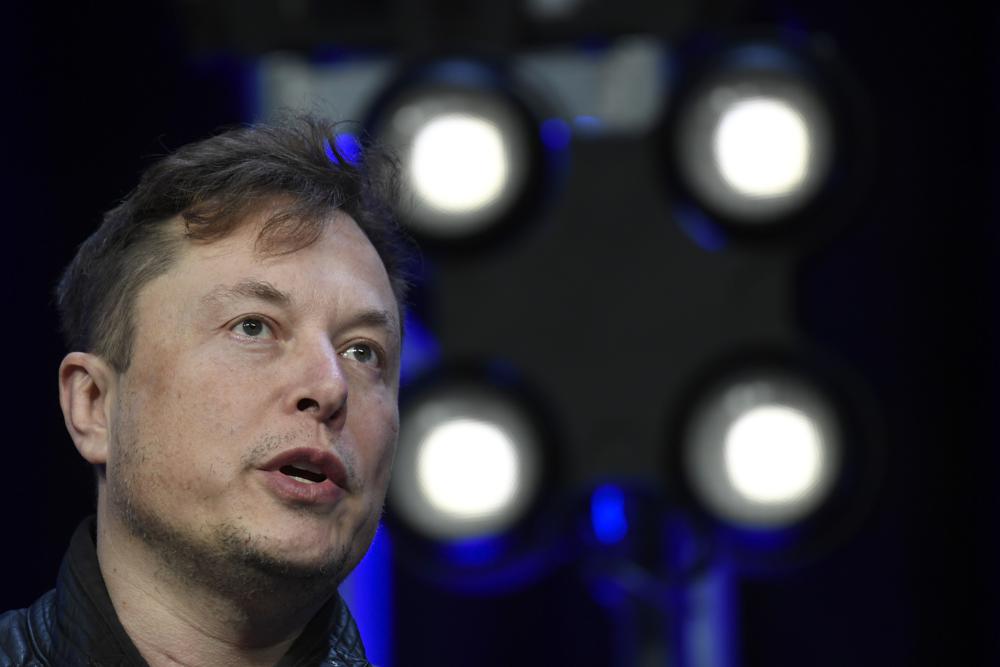A federal judge has rejected Elon Musk’s bid to throw out a securities fraud settlement over tweets claiming that Musk had the funding to take Tesla private in 2018.
Judge Lewis Liman on Wednesday also denied a motion to nullify a subpoena of Musk seeking information about possible violations of his settlement with the U.S. Securities and Exchange Commission.
Musk had asked the Manhattan federal court to scrap the settlement, which required that his tweets be approved by a Tesla attorney before being published. The SEC is investigating whether the Tesla CEO violated the settlement with tweets last November asking Twitter followers if he should sell 10% of his Tesla stock. Limon’s ruling said that Musk made the tweets without getting pre-approval.
The whole dispute stems from an October 2018 agreement with the SEC that Musk signed. He and Tesla each agreed to pay $20 million in civil fines over Musk’s tweets about having the “funding secured” to take Tesla private at $420 per share.
The funding was far from locked up, and the electric vehicle company remains public, but Tesla’s stock price jumped. The settlement specified governance changes, including Musk’s ouster as board chairman, as well as pre-approval of his tweets.
Limon’s ruling clears the way for the SEC to seek a court order enforcing the subpoena, and for an investigation into another possible violation of the settlement by Musk.
Musk attorney Alex Spiro contended the SEC is using the settlement and “near limitless resources” to chill Musk’s speech. He wrote in court documents that Musk signed the settlement when Tesla was a less mature company and SEC action jeopardized the company’s financing at a critical time.
He also alleged that the subpoena from the SEC is illegal, and that the agency can’t take action about Musk’s tweets without court authorization.
But in a 22-page ruling, Liman wrote that Musk’s claim that economic duress caused him to sign the settlement is “wholly unpersuasive.”
Even if Musk was worried that litigation with the SEC would ruin Tesla financially, “that does not establish a basis for him to get out of the judgment he voluntarily signed,” Liman wrote.
The judge also said the argument that the SEC had used the settlement order to harass Musk and launch investigations was “meritless.”
“Musk could hardly have thought that at the time he entered the decree (settlement) he would have been immune from non-public SEC investigations,” Liman wrote. “It is unsurprising that when Musk tweeted that he was thinking about selling 10% of his interest in Tesla … that the SEC would have some questions.”
Now the SEC could ask Liman to enforce the subpoena, which Liman wrote is the proper legal forum for Musk to challenge it. In the settlement, Musk also agreed not to deny the SEC’s allegations in the 2018 securities fraud complaint. The SEC also could investigate Musk’s recent denials.
Musk has contended in a recent interview that he did indeed have the funding lined up in 2018. But a judge in a separate case ruled that his tweets about that were false.
An SEC spokesman didn’t respond to a message asking whether it would try to enforce the subpoena. A message was left Wednesday seeking comment from Spiro about whether Musk will appeal Liman’s order.
Liman wrote in his ruling that the “funding secured” tweet allegedly was false. “Musk had not discussed specific deal terms with any potential financing partners, and he knew the potential transaction was uncertain and subject to numerous contingencies,” Liman wrote.
He also agreed with the SEC that Congress gave it broad powers to investigate if someone has violated federal securities laws. “Musk may wish it were otherwise, but he remains subject to the same enforcement authority – and has the same means to challenge the exercise of that authority – as any other citizen,” Liman wrote.
(AP)












One Response
What a corrupt decision. The entire “settlement” is unconstitutional. The SEC is a bully and tramples over people’s rights, forcing them into so-called “voluntary deals” like a mafia boss who exacts “voluntary insurance fees” from people who don’t want their businesses destroyed.